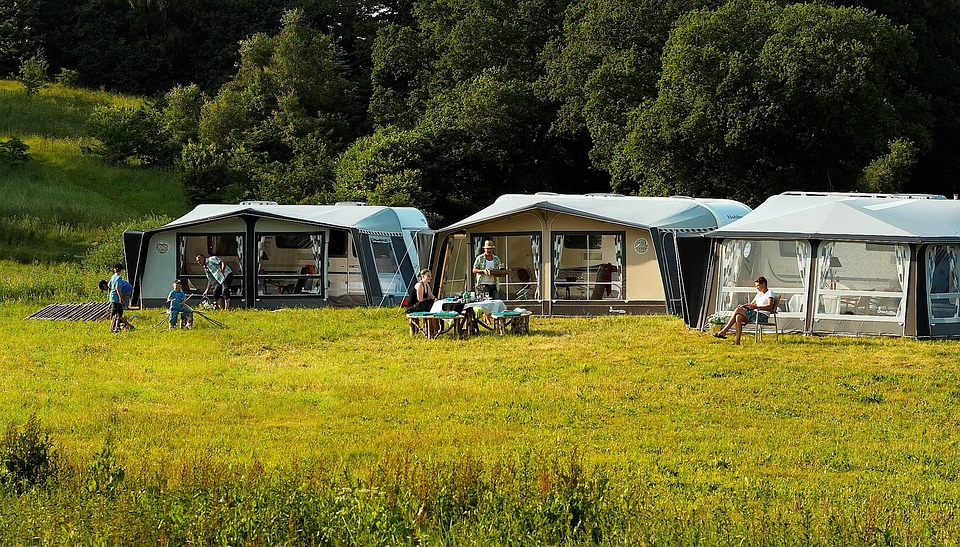Table of Contents
Introduction
When it comes to outdoor adventures, having the perfect tent can make all the difference.
Whether you are an avid hiker, a weekend camper, or planning a long backpacking trip, choosing the right tent is essential for a comfortable and enjoyable experience.
This ultimate guide will provide you with the essential tips and factors to consider when selecting your ideal tent.
Tent Size
One of the first things to consider when choosing a tent is the size.
The number of people you plan to accommodate within the tent will dictate the size you need.
Tents are usually categorized as one-person, two-person, four-person, and so on.
It’s important to choose a size that allows enough space for you, your gear, and any additional comfort items you may require during your adventure, such as camping chairs or tables.
Tent Type
Next, you need to decide on the type of tent that suits your needs.
There are various tent types available, including dome tents, tunnel tents, geodesic tents, and more.
Dome tents are versatile and offer good headroom, while tunnel tents have a larger living space.
Geodesic tents are designed to withstand harsh weather conditions, making them ideal for challenging environments.
Consider the weather conditions you are likely to encounter during your outdoor adventures, as this will help determine the most suitable tent type for you.
Tent Material
The material used in tent construction is crucial in determining its durability, weight, and weather resistance.
Common tent materials include nylon, polyester, and canvas.
Nylon is lightweight, tear-resistant, and dries quickly.
Polyester is also lightweight and offers good durability and resistance to UV rays.
Canvas tents provide excellent durability and insulation, making them perfect for colder climates.
Choose a material that fits your camping style and environment.
Season Ratings
Tents are often categorized based on their season ratings.
These ratings indicate the type of weather conditions a tent can handle.
A three-season tent is suitable for spring, summer, and fall, providing great ventilation and protection from rain.
Four-season tents are designed for harsh winter conditions, offering better insulation and strength against heavy snow and strong winds.
Consider the seasons and climate you plan to camp in when selecting the appropriate season rating for your tent.
Additional Features
Beyond the basic considerations, tents can come with several additional features that enhance comfort and convenience.
Look for features such as multiple entrances and vestibules for easy access and extra storage space.
Ventilation options, such as mesh panels and vents, are crucial for airflow during hot weather.
Some tents offer built-in LED lights or power ports for charging devices.
Reflective guy lines and rainflys can improve visibility and weather protection.
Assess your priorities and preferences to choose a tent with the desired additional features.
FAQs
What is the best tent size for solo camping?
For solo camping, a one-person tent offers the perfect size.
It is lightweight, compact, and easy to set up, providing a cozy shelter for one individual.
Are inflatable tents a good choice?
Inflatable tents are gaining popularity due to their quick and effortless setup process.
They are sturdy and perform well in various weather conditions, making them a reliable choice for many outdoor enthusiasts.
How important is tent weight for backpacking trips?
Tent weight is crucial for backpacking trips as it directly affects your comfort and ease of carrying your gear.
Lightweight tents are highly recommended to ensure you can trek for long distances without feeling weighed down.
What if my camping destination experiences heavy rains?
If you anticipate heavy rainfall during your camping trip, it is recommended to choose a tent with a higher waterproof rating.
Look for features like a rainfly, bathtub floor, and taped seams to ensure maximum protection from water.
What should I do for tent maintenance?
Proper tent maintenance is essential for its longevity.
Ensure you clean and dry your tent before storing it to prevent mold and mildew growth.
Avoid leaving it in direct sunlight for extended periods to prevent fabric damage.
Always follow the manufacturer’s instructions for cleaning and care.




